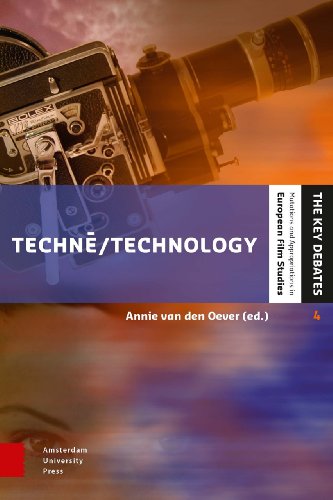Zeitschrift für Medienwissenschaft 8: Medienästhetik (2013) [German]
Filed under journal | Tags: · aesthetics, art, cybernetics, media, media theory, networks, philosophy of technology, technology

Der Schwerpunkt «Medienästhetik» findet seinen Ausgangspunkt in einer Beobachtung Félix Guattaris, die in ihrer ganzen Dringlichkeit vermutlich erst heute einzusehen ist: Die Produktion von Subjektivität, die mit der allgemeinen Kybernetisierung der Lebensform einhergeht, wurde von Guattari als eine Frage der Ästhetik pointiert. Die medientechnologische Situation, die hinter dieser Neubewertung des Ästhetischen steckt, hat sich in den letzten zwanzig Jahren durch den Eintritt in eine Prozesskultur, wie sie die multiskalaren, netzwerkbasierten, environmentalen Medien des 21. Jahrhunderts bringen, ebenso verschärft wie ausdifferenziert.
Mit Beiträge von Félix Guattari, Luciana Parsi, Erich Hörl, Geert Lovink, Olga Goriunova, Jens Schröter, Yuk Hui, Shintaro Miyazaki, Anke Heelemann, Petra Löffler, Olivier Simard, Ute Holl, Nacim Ghanbari, Sebastian Haunss, Beate Ochsner, Isabell Otto, Tristan Thielmann, Ralf Junkerjürgen, Juliane Rebentisch, Michaela Ott, Jan Distelmeyer, Oliver Leistert, Theo Röhle, Maja Figge, Daniela Wentz und Sebastian Gießmann.
Guest edited by Erich Hörl and Mark B. N. Hansen
Publisher Diaphanes, Zürich, 2013
ISBN 9783037342404
ISSN 1869-1722
Open Access
216 pages
PDF (single PDF)
PDF (PDF articles)
Lisa Gitelman: Paper Knowledge: Toward a Media History of Documents (2014)
Filed under book | Tags: · book, knowledge, media, media history, media studies, media technology, paper, print, technology

“Paper Knowledge is a book about the mundane: the library card, the promissory note, the movie ticket, the PDF (Portable Document Format). It is a media history of the document. Drawing examples from the 1870s, the 1930s, the 1960s, and today, Lisa Gitelman thinks across the media that the document form has come to inhabit over the last 150 years, including letterpress printing, typing and carbon paper, mimeograph, microfilm, offset printing, photocopying, and scanning. Whether examining late nineteenth century commercial, or ‘job’ printing, or the Xerox machine and the role of reproduction in our understanding of the document, Gitelman reveals a keen eye for vernacular uses of technology. She tells nuanced, anecdote-filled stories of the waning of old technologies and the emergence of new. Along the way, she discusses documentary matters such as the relation between twentieth-century technological innovation and the management of paper, and the interdependence of computer programming and documentation. Paper Knowledge is destined to set a new agenda for media studies.”
Publisher Duke University Press, 2014
Sign, Storage, Transmission series
ISBN 0822376768, 9780822376767
210 pages
Interview with the author: Trevor Owens (2014).
Reviews: Jan Baetens (Leonardo, 2014), Alexander von Lünen (2014), Hope Leman (2014), Colin Higgins (Times Higher Education, 2014).
PDF (updated on 2021-4-9)
Comment (0)Annie van den Oever (ed.): Technē/Technology: Researching Cinema and Media Technologies (2014)
Filed under book | Tags: · aesthetics, art, cinema, film, film theory, image, machine, media, media technology, media theory, perception, phenomenology, philosophy of film, philosophy of technology, photography, technē, technology, television, video, vision

“This fourth title in the series The Key Debates sets out where the term technē comes from, how it unleashed a revolution in thought and how the concept in the midst of the current digital revolution, once again, is influencing the study of film. In addition, the authors – among them André Gaudreault, Geoffrey Winthrop-Young, Martin Lefebvre, Dominique Chateau, Nanna Verhoeff, Andreas Fickers and Ian Christie – investigate how technologies have affected the major debates about film, how they affected film theory and some of its key concepts. This is one of the rare books to assess the comprehensive history of the philosophies of technology and their impact on film and media theory in greater detail.”
Publisher Amsterdam University Press, Amsterdam, 2014
The Key Debates: Mutations and Appropriations in European Film Studies series
Creative Commons BY NC ND License 3.0
ISBN 9089645713, 9789089645715
413 pages

